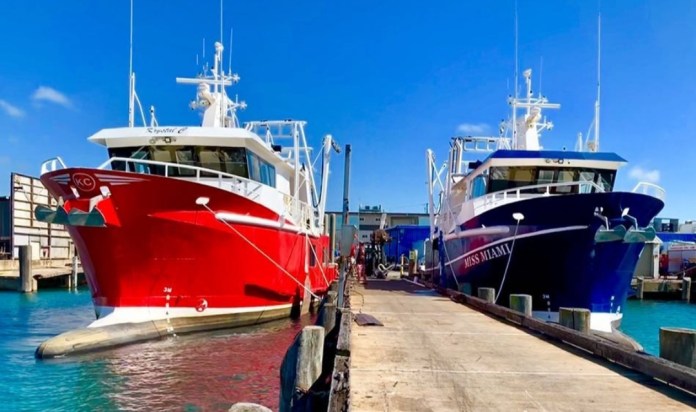
SIBU, Nov 3: Sarawak Association of Marine Industries (Samin) has called on the Malaysian government to be decisive in tightening the Cabotage Policy to protect the interests of local marine industry and the nation as a whole.
Given the importance of the marine industry to Malaysia’s socio-economic growth and trade competitiveness, Samin president Dr Renco Yong emphasised that it is imperative for the government to impose policies that would promote the growth and development of the industry so as to ensure that the economy remain globally competitive and strongly integrated in the global supply chain.
“One policy that must be implemented decisively is the Cabotage Policy which preserves the right of locally registered ships to carry cargo between Malaysian ports and to undertake works in Malaysian waters,” he said in a statement issued yesterday.
However, Yong viewed that the loose implementation of Cabotage Policy in Malaysia and its politicisation has resulted in high dependency on foreign ships in domestic maritime trade and certain marine activities.
If not addressed, he warned that it could be detrimental to the nation’s trade and human capital development in the marine industry and even sovereignty.
“Other countries showed little compromise in protecting the interests of their local marine industry such as the United States, European Union, Indonesia and Australia.
“The liberal approach taken by Malaysia in allowing foreign vessels which fulfilled the criteria to operate certain trades in local waters has not been popular with local players who wanted local interest to prevail over that of foreign companies,” he pointed out.
Yong added that the introduction of the Cabotage Policy in 1980 has been instrumental in the development of the Malaysian shipping tonnage as reserving the transportation of cargos between local ports for local shipping companies allowed them to steadily build their capacity and indirectly benefited shipyards and other players as well as supporting ship building and ship repair (SBSR) industry in the country.
“The policy also reduces Malaysia’s dependence on foreign vessels and to stem the outflow of foreign exchange in the form of expenditure on freight charges paid to foreign shipping operators. It also enables Malaysia to engage in shipping commitments through bilateral, regional and international agreements.
“As such, the government must not waver in imposing the Cabotage Policy given the tremendous multiplier effects it generates besides benefitting local shipyards, shipping companies and marine industry players.
“Activities such as cargo transportation, exploration and production of off-shore energy and marine cable laying operations which are crucial to Malaysia’s economic and strategic interests should be reserved to local shipping companies,” he said.
As shipyards in the United States and Indonesia have benefitted from the decisive implementation of Cabotage Policy, Yong said it should be emulated by Malaysia for the sake of safeguarding national economic and strategic interests.
“Tightening the Cabotage Policy would contribute to the development of Malaysia’s SBSR sector and a host of supporting activities in the marine industry.
“Such policy push would be helpful especially at a time when several yards are suffering from thin order books and are struggling to replenish against the backdrop of low demand for shipping services, overcapacity in certain shipping segments, low oil prices and tight financing that has added to the cost of building ships in local yards.
“With the strict application of Cabotage Policy on SBSR in place in Malaysia, local yards could flourish along with the shipping sector. This, in turn, could trigger a virtuous cycle to other sub-sectors in the local marine industry and benefit talent and skills development amongst locals. This could help achieve the targets to make Malaysia a globally competitive nation in SBSR and transform the economy into a high-income nation,” he added. — DayakDaily








